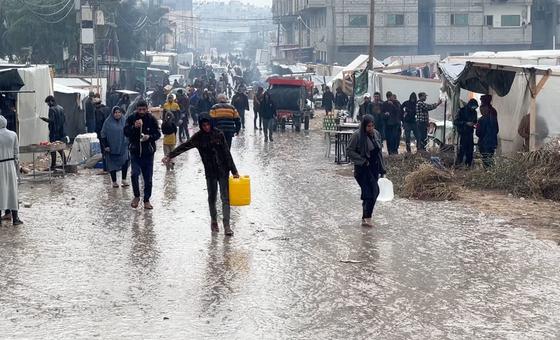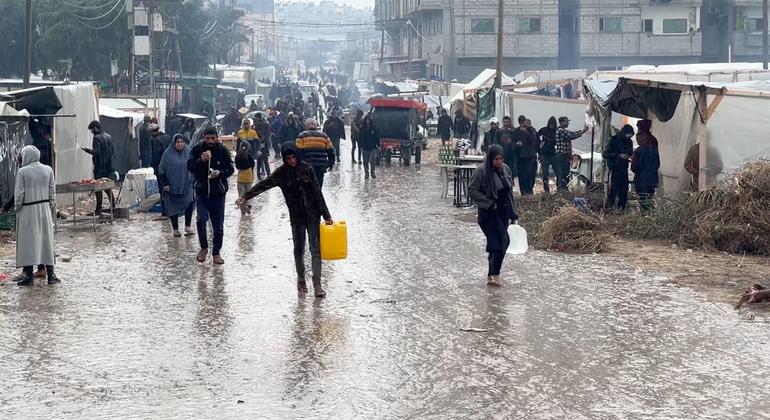
“We as the UN and Member States of the UN can bear witness,” OCHA spokesperson Jens Laerke told journalists in Geneva. “We can warn what might unfold with a ground invasion and we can make clear what the law says… under international humanitarian law, indiscriminate bombing of densely populated areas may amount to war crimes.”
The development came as OCHA reported an “increase in strikes” in Rafah governorate on Sunday and Monday. At the same time, thousands of Gazans continue to flood into Rafah, including many who have fled intense fighting in Khan Younis.
The result of this exodus is that Rafah’s population have increased fivefold since war erupted in the enclave on 7 October, in response to Hamas-led terror attacks in Israel that left some 1,200 dead and more than 250 captured as hostages.
“To be clear, intensified hostilities in Rafah in this situation could lead to large-scale loss of civilian lives and we must do everything possible within our power to avoid that,” Mr. Laerke said.
Khan Younis evacuation
Confirming accounts of ongoing heavy fighting in Khan Younis, Tommaso Della Longa from the International Red Cross and Red Crescent Societies (IFRC) reported that 8,000 Gazans who had been sheltering at Al Amal hospital had left the facility on Monday, after Israeli authorities guaranteed safe passage.
Despite this positive development, the situation in Gaza is “beyond catastrophic…a nightmare” that continues to get worse, the IFRC spokesperson said, as he mourned the death of aid worker, Hedaya Hamad, from the Palestine Red Crescent Society (PRCS), killed during shelling at Al Amal hospital compound last Friday.
“In the last more than two weeks the hospital was surrounded by heavy shelling, fighting, no way in, no way out, (it was) hit several times and the last time was last Friday when this colleague was killed,” Mr. Della Longa said, as he described desperate shortages of medicine, food and water and the “almost impossible” task of replenishing stocks and of gaining access for ambulances.
Almost 100 people remain inside the ailing health facility including elderly patients and others with disabilities who could not be moved, along with staff and volunteers.
“I don’t want even to think about the possibility of whether Al Amal will close in the next coming days,” said the IFRC spokesperson, noting that the same scenario had played out at another hospital, Al Quds, in Gaza City, which the PCRS declared closed on 12 November. “The reality is that if the situation does not change, it will be very difficult to continue the activities in the hospital.”



